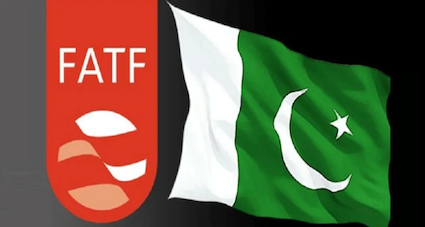Pakistan is out of Financial Action Task Force (FATF) grey-list after the October 20-21 plenary meeting at Paris, as was being forecast. A narrative had been carefully orchestrated during the past few months in media, both western and Pakistani, that our western neighbour was moving well against terror.
Incidentally, FATF keeps a watch on anti-money laundering (AML), proceeds of crimes and counter financing terrorism laws of all nations. This is being done to purportedly check the misuse of international financial system. The manner in which FATF has allowed Pakistan to get off the hook indicates that things are all hunky dory in there. Is it so?
On closer scrutiny, it becomes clear to us that Pakistan has virtually done nothing to stop using terrorism as an unstated official policy. What significant steps, if any, has Pakistan taken in the recent past that it deserves to be taken out of the grey-list? To give it easy access to international financing.
Well, if truth be told, this reprieve for Pakistan is a reflection of Islamabad’s improved relations with Washington. Not its improved record on terrorism. All its assets, of the terror type, be it Maulana Masood Azhar of Jaish e Mohammad (JeM), Hafiz Saeed, the founder of Lashkar e Toiba (LeT) and LeT operational commander Zakiur Rehman Lakhvi are doing well. None of them has been punished by Pakistan’s security agencies. Two more LeT operatives that have become household names recently include Muhammad Sarwar and Shahid Mehmood, as are countless other lesser known terrorists.
Of course, for some time, intelligence agencies have ensured that these people are not making any public appearances! So, the charade of Pakistan having taken action against terror has been given a standing ovation by the FATF. It is clear that this has been done at US bidding.
We don’t need to go far-off to marshal arguments about hollowness of FATF processes and its subversion by the US and its lackeys. Our neighbourhood provides ample evidence and arguments about lack of independent FATF policy. If Pakistan’s record was not bad enough, developments in Afghanistan since August 15, 2021, are clear indicators of FATF failure to do anything against terrorists.
Over 14 months later, nothing has been done by FATF or many of its affiliates to bring Sirajuddin Haqqani, to heel. Sirajuddin is in a league of his own, someone who carries a bounty of $10 million on his head from the US, and not a murmur has been heard from FATF about him. His brothers and others around him have a daunting standing amongst designated terrorists of the world.
In fact, as many as 14 members of the Taliban’s government in Kabul are prominent members of UN Security Council’s terrorism list. These include Prime Minister Mullah Mohammad Hassan Akhund and both his deputies. Afghanistan was in the grey-list from early part of 2012 to June 2017.
A sign of improvement in Pakistan-US ties is the September meeting of Pakistan Prime Minister Shehbaz Sharif and US President Joe Biden. Sharif, accompanied by his foreign minister Bilawal Bhutto had also met senior US minister Antony Blinken. Earlier, when Imran Khan was PM of Pakistan till April, Biden had not even made a courtesy call to him after he took over as President. The developments pertaining to Pakistan’s exit from grey-list started taking concrete shape in June this year.
In the recent past, there have been efforts by the US to get Russia suspended from FATF participation. This is in tune with US objective of trying to pull down Russia due to Ukraine war. Of course, the US has been trying to go after Russia, short of a direct confrontation, for a long time.
(Sant began as a teacher but after six years, joined the Indian Express, Chandigarh in 1990, the year when terrorism was taking its first step in J & K and soon there would be exodus of lakhs of Kashmiri Pandits from the Valley. He subsequently worked for The Statesman, The Times of India and Star News among others. He is based in Jammu since May 2000. He edits epaper.earthnews.in, a newspaper from Jammu presently.)


